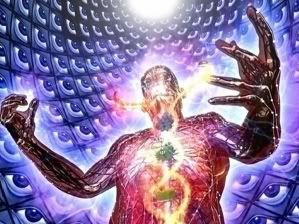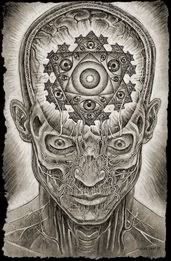The Divine Stagnance: 1

Religion is often in direct opposition to scientific developments. In my book, this means direct opposition to the progress of mankind. I think, by now, that anyone with half a brain is familiar with the numerous follies of religion in history, but I doubt that many people really grasp the magnitude of the situation. I’ve done quite a bit of research on the topic and I found that the instances that I was familiar with comprised about one percent of the damage that religion has done to mankind. I have written some responses to questions I was asked on this subject several months ago. They are focused around the current controversy over stem cell research, but they inevitably address general concepts concerning the place of religion and morals in scientific development. Because it was appropriate for the original audience, my anger was significantly toned down for these writings (I personally feel that oraganized religion should be charged with crimes against humanity and exterminated for the virus that it is). However, the concepts are present along with enough examples to make any rational person nauseous. For a much better and more detailed account, see the sidebar link to ‘The War of Science and Religion.’
Here is the first:
ARE EMBRYONIC STEM CELLS CONCIDERED HUMAN?
The issue of the humanity of embryonic cells and the consequent moral status is remains the foremost debate in issues concerning stem cell research. Ironically, this issue is, in fact, a moot point and is, by its very nature, paradoxical. The reality is that most of the definitions concerning what is and is not considered human, and what does and does not have -even in some limited fashion- human rights, are based solely on religious scripture. Looking at the statements of those groups who would oppose funding for embryonic stem cell research, or even the lawfulness of such research, the most common arguments take the form of theological reasoning based in Scripture or extrapolations of some ancient scenario preserved in religious texts. The Catholic Church resorts to the Donum Vitae citing, the “human being is to be respected and treated as a person from the moment of conception,” further noting that the “the prudent response would be to recognize that as a practical matter ensoulment is coincident with fertilization” [1]. A prominent Catholic Theologist stating an opinion on the morality of using embryonic stem cells notes “the important help of Scripture” [2]. A representative of the Eastern Orthodox Church claims to “understand that the human person is one who is in the image and likeness of God” and that the “process towards authentic human personhood begins with the zygote” [3], while a Jewish representative claims a textually based opinion that before the fortieth day after conception, the embryo is to be considered 'like water', calling upon passages from the Talmud, the Mishnah, the Arakin, and the Old Testament [4]. In more influential positions, the head of President Bushes Bioethics Council states “we should be eager to avail ourselves of the wisdom contained in the great religions” [5] while the President himself admits his views to be “shaped by deeply held beliefs,” citing the particular belief that “human life is a sacred gift from our Creator” [6]. All of these interpretations of sacred texts -which can surly come to no agreement- are used as ammunition against pursuing embryonic stem cell research.
The paradox arises in the fact that the very research being opposed by such reasoning is the only endeavor with any hope of shedding new light upon the issue of what is and is not a human being. Take for example the facts that a blastocyst only consists of about 140 cells, or that no nervous system has been developed. It may be useful to understand that cells in the blastocyst stage can actually be separated and will form two separate persons (countering the argument of individuality), or the fact that the outer cells of the blastocyst will not be human at all but will form the placenta and chorionic villa [4]. So to adequately address what is and is not human, to ever approach on any sort of relevant definition, absolutely requires that research on such cells be undertaken. With this in mind, the detriment of Scriptural arguments is twofold: first to fuel ceaseless bickering between denominations, and second, to prevent the only foreseeable means of resolution.
Though my point be clear, it would be truly unthorough on my part to leave this discussion without some presentation of the track record of such theological arguments as applicable to scientific advancements. Scripture was used to contest much of science leading to our modern understanding of astronomy, for example. The Old Testament claimed a 'firmament' above the Earth with all the heavenly bodies hung within it, further maintaining that the Earth was the center of the universe as stated in Psalm 93:1 and again in Ecclesiastes, its advocates regarding the sun-centered theory of Copernicus as “delusive and arbitrary hypothesis, contrary to Scripture” In characteristic fashion, this argument was backed by such waterproof statements as “Since it can certainly be gathered from Scripture that the heavens move about the Earth, and since a circular motion requires something immovable around which to move,... the Earth is at the center of the universe.” Qouters of scripture further denounced ideas such as the moon reflecting sunlight, contradictory to the statement in Genesis regarding the moon as a 'bright light,' the existence of other planets, gravity, and the elliptical motion of the planets; each, of course, supported by logic equally as insurmountable as that in support of geocentricism presented above [7].

 screaming godhead
screaming godhead


